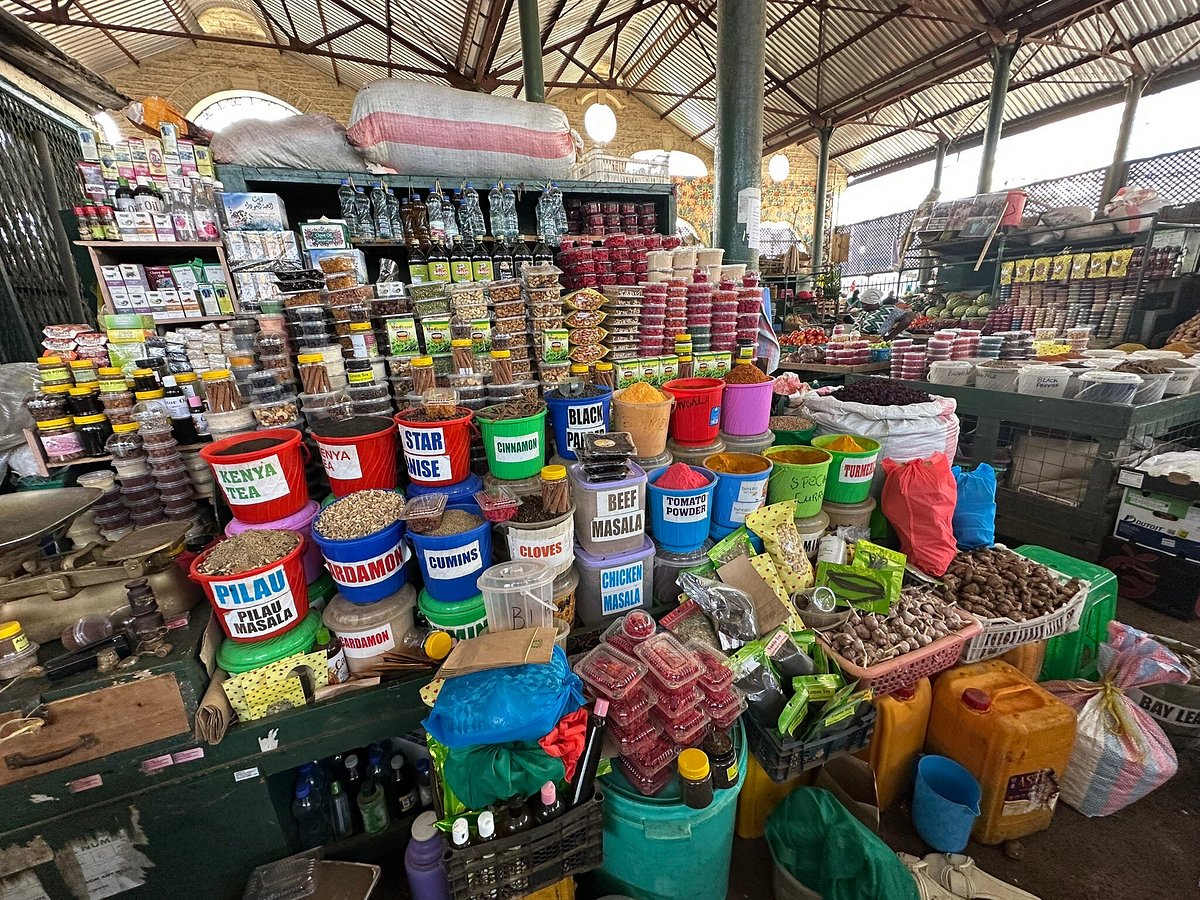- Home
- Uncategorized
- Bargaining Like a Local: Mastering Mombasa’s Markets
Bargaining Like a Local: Mastering Mombasa’s Markets

Karibu sana! (You are very welcome!) to the vibrant heart of Mombasa, where the air hums with the rhythm of life, the scent of cloves and cardamom weaves through bustling alleys, and the art of bargaining brings buyers and sellers together in a timeless dance. Mombasa’s markets are more than places to shop—they are living tapestries of culture, history, and community, where every transaction tells a story. From the historic lanes of Old Town to the chaotic charm of Marikiti Market, these markets pulse with the spirit of Kenya’s coastal gem.
Bargaining here is not just about securing a deal; it’s a cultural ritual, a chance to connect with locals, share a laugh, and become part of Mombasa’s vibrant daily life. Whether you’re a seasoned haggler or a curious first-timer, mastering the art of bargaining in Mombasa’s markets will transform your visit into an unforgettable adventure. Join us as we explore the city’s iconic markets, share insider tips for negotiating like a local, and uncover the cultural heartbeat behind this cherished tradition. Ready to dive in? Let’s go!
The Markets of Mombasa: A Sensory Journey
Mombasa’s markets are as diverse as the city itself, each offering a unique slice of its cultural mosaic. Picture narrow alleys lined with stalls, vendors calling out in Swahili, and the vibrant colors of fabrics and spices catching the sunlight. Here are four must-visit markets to start your bargaining adventure:
- Makongeni Market (Central Market): One of Mombasa’s oldest markets, Makongeni is a cultural crossroads and a melting pot of traditions. Organized into sections for fresh produce, spices, and crafts, it’s a sensory overload of sights and sounds. Did you know? You might encounter traditional healers selling ancient remedies alongside exotic spices, reflecting the market’s deep cultural roots. The chatter of vendors, the sizzle of street food, and the occasional muezzin call to prayer create an atmosphere that’s quintessentially Mombasan.
- Old Town Market: Nestled in the historic heart of Mombasa, Old Town’s market is a treasure trove of tourist-friendly shops and souvenir stands. Fun Fact: Once a hub for the slave trade, this market now brims with exotic spices, intricately woven textiles, and handcrafted jewelry, echoing Mombasa’s ancient trade routes with Asia, Portugal, and Arabia. Its proximity to Fort Jesus, a UNESCO-recognized fortress, adds a historical layer to your shopping spree.
- Biashara Street: In downtown Mombasa, Biashara Street is a haven for textiles and crafts. Fun Fact: It’s famous for vibrant Maasai shuka and sandals, colorful cloths used as wrap-around dresses or beach towels, perfect for embracing local fashion. The street also buzzes with food stands offering quick, flavorful bites, making it a one-stop shop for both souvenirs and snacks.
- Marikiti Market: Known for its vibrant street life, Marikiti is a bustling hub where fresh produce, seafood, and spices create a sensory overload of colors, flavors, and sounds. Did you know? Marikiti is a haven for street food lovers, with vendors serving up samosas, mishkaki (grilled meat skewers), and chapatis. It’s a place where bargaining is not just expected but celebrated, making it ideal for those ready to dive into the fray.
Each market offers a unique window into Mombasa’s soul, where bargaining is the key to unlocking its treasures. As you wander these vibrant spaces, you’re not just shopping—you’re stepping into a centuries-old tradition of trade that has shaped this coastal city.
The Art of Bargaining: Tips to Haggle Like a Pro

Bargaining in Mombasa’s markets is a skill that blends strategy, charm, and cultural respect. It’s not about outsmarting the vendor but finding a price that feels fair for both sides. Here are seven insider tips to help you haggle like a local:
- Know Your Prices: Before you start, get a sense of average prices for items like spices, jewelry, or textiles. Ask locals, observe other stalls, or check online guides
- Start Low, but Reasonable: Vendors often quote a high price, especially to visitors. Begin your counteroffer at about half the asking price to leave room for negotiation. For example, if a kikoy is quoted at KSh 1000, try starting at KSh 500. Tip: July to October is the best time to shop, with pleasant weather making negotiations more comfortable.
- Stay Friendly and Engaged: Bargaining is a social exchange, so keep the mood light. Smile, ask about the item’s origin, or compliment the vendor’s stall. A friendly demeanor can lead to better deals and a more enjoyable experience.
- Speak a Little Swahili: Using Swahili phrases shows respect and can soften negotiations. Try these:
- Bei gani? (How much?) – Start the conversation.
- Ni bei ghali (It’s too expensive) – Politely push back.
- Nataka kununua… (I want to buy…) – Show interest.
- Unaweza punguza kidogo? (Can you reduce it a little?) – Ask for a discount.
- Be Ready to Walk Away: If the price isn’t right, thank the vendor and start to leave. Often, they’ll call you back with a better offer. This tactic shows you’re serious about your budget without being confrontational.
- Carry Small Bills: Cash is king in Mombasa’s markets, and small denominations make transactions smoother. Vendors may not have change for large bills, so keep KSh 100 and KSh 500 notes handy. Safety Tip: Stay vigilant in crowded areas and keep your belongings secure to avoid pickpockets.
- Take Your Time: Bargaining is a process, not a race. Enjoy the back-and-forth, ask questions, and savor the interaction.
Traveler’s Tips: Markets are most active in the mornings when vendors set up, offering a lively atmosphere to gauge prices.
Bargaining is as much about the journey as the destination. Each negotiation is a chance to learn, laugh, and connect with Mombasa’s vibrant community.
Cultural Insights: The Heart of Bargaining
In Mombasa, bargaining is more than a transaction—it’s a cultural ritual rooted in the city’s history as a trading hub. For centuries, Mombasa’s ports welcomed merchants from Arabia, India, and beyond, creating a melting pot of commerce and culture. Fun Fact: This legacy lives on in markets like Old Town, where goods once traded along ancient routes are still sold today. Bargaining continues this tradition, blending negotiation with social connection.
Fun Fact: This legacy lives on in markets like Old Town, where goods once traded along ancient routes are still sold today. Bargaining continues this tradition, blending negotiation with social connection.

In Kenyan culture, bargaining is a form of respect, a way to acknowledge the vendor’s craft while ensuring a fair deal. It’s conducted in good humor, with both parties engaging in a friendly dance of offers and counteroffers.
Tip: Ask vendors about the story behind their goods or their family’s history in the market. This not only enriches your experience but can also lead to better deals.
Your Market Adventure Awaits

Bargaining in Mombasa’s markets is more than a shopping trip—it’s an adventure that immerses you in the city’s vibrant culture. Each negotiation is a chance to connect with locals, uncover stories, and bring home treasures that carry the spirit of Mombasa.
Tip: If you’re feeling adventurous, sample the street food at Marikiti or Kibokoni Market—local favorites like samosas and mishkaki are a delicious reward for your bargaining efforts.
When you’re ready to unwind after a day of market exploration, Bahari Beach Hotel offers a serene retreat on the pristine shores of Mombasa Nyali. With its warm hospitality and proximity to the city’s cultural gems, it’s the perfect base for your Mombasa adventures. So, pack your curiosity, your bargaining spirit, and a few Swahili phrases, and dive into the vibrant world of Mombasa’s markets. Karibu sana!





